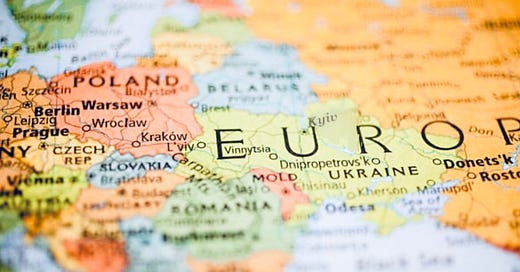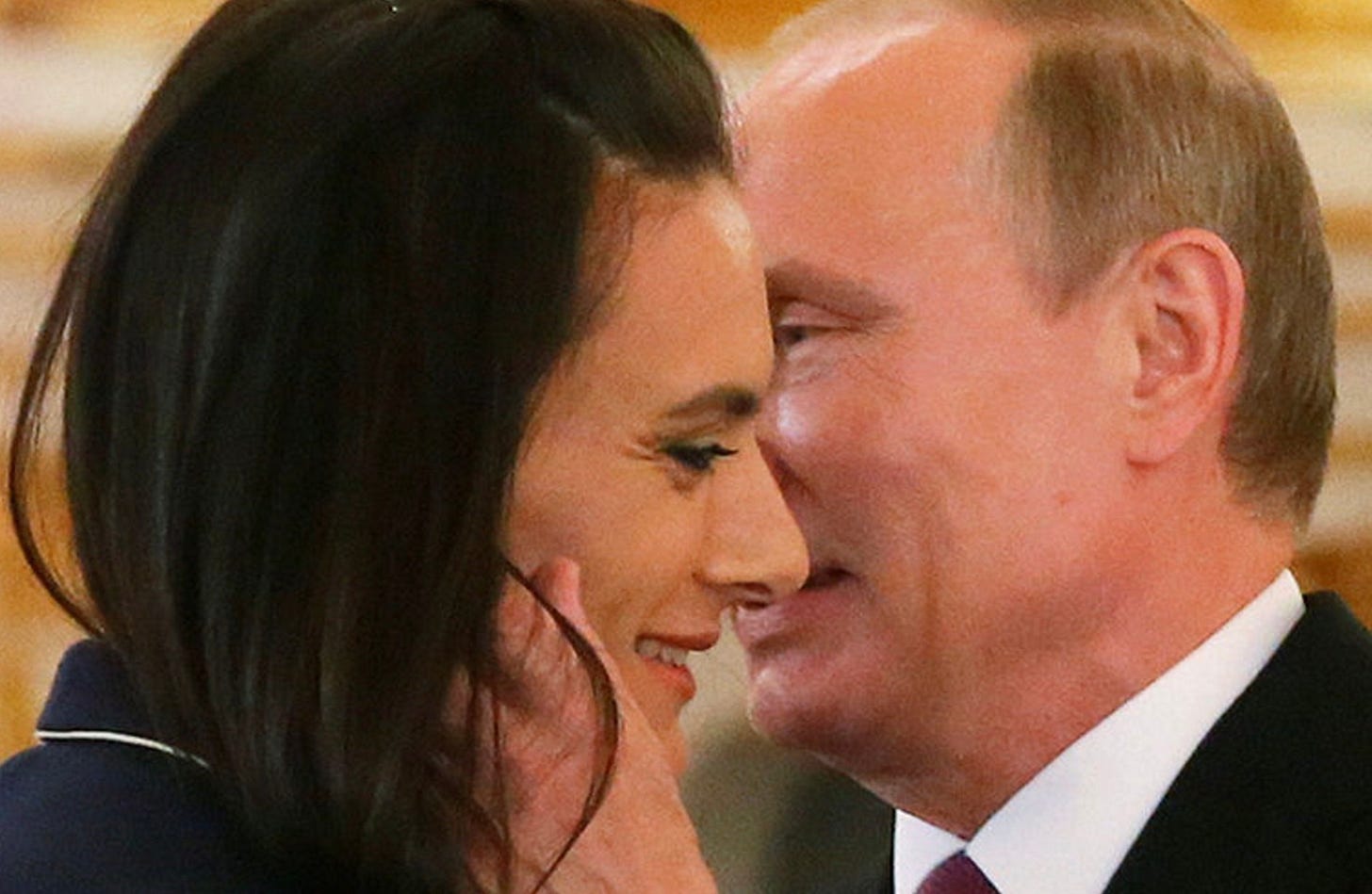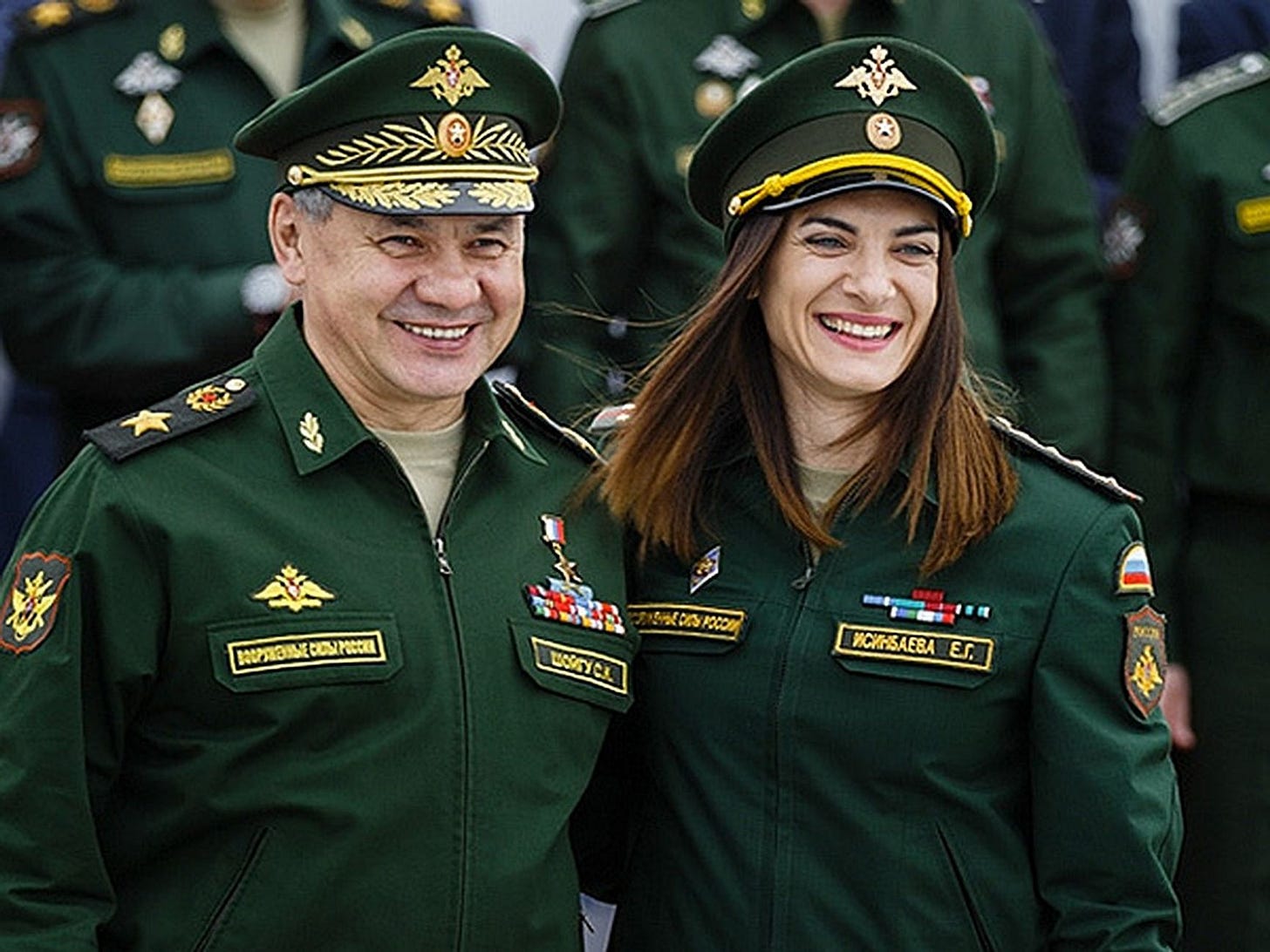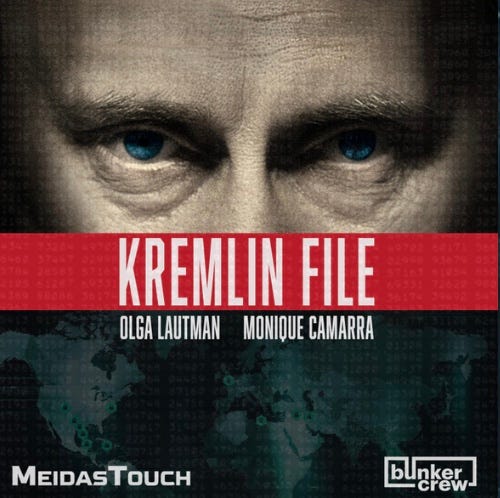ISW: Russian defenses in Ukraine are 'brittle'
Ukrainian forces continued counteroffensive operations and made some gains in at least three sectors of the frontlines, including in western Zaporizhzhia Oblast and around Bakhmut as of July 13, the Institute for the Study of War (ISW) said in its most recent assessment.
The ISW also drew attention to a leaked audio clip in which former Russian Major General Ivan Popov claimed that Russian Defense Minister Sergei Shoigu dismissed him for expressing persistent grievances about problems on the western Zaporizhia Oblast frontline.
Popov ostensibly expressed concerns over the need for troop rotations in western Zaporizhia Oblast amid successful Ukrainian counteroffensive operations.
The ISW has previously corroborated this concern, assessing that "Russian forces lack the reserves to rotate frontline units," indicating that Russian forces are unable to maintain their defenses in western Ukraine.
Popov’s dismissal corroborated Russian forces' inability to conduct force rotations, indicating that Russian defenses are 'brittle.'
https://kyivindependent.com/isw-37/
Russia’s war might have a new casualty: The Putin-Erdogan bond
As Turkish President Recep Tayyip Erdogan lifted a veto this week on Sweden joining NATO, Russian hard-liners, stung by a flurry of recent Turkish gestures of support for Ukraine, demanded that Turkey be designated an “unfriendly” country.
The pro-Western moves by Turkey, including Erdogan’s warm welcome of Ukrainian President Volodymyr Zelensky in Istanbul on Friday, led to speculation that Turkey was pivoting to restore warmer relations with Europe and the United States after several years of close cooperation with Moscow.
In Russia, where President Vladimir Putin’s good relationship with Erdogan is valuable geopolitical currency, the sense that Erdogan may be flipping to a closer, more cooperative relationship with Western leaders seemed to provoke almost as much anxiety as the idea of Sweden joining NATO, raising questions about whether Russia’s war has undermined one of Moscow’s most valued relationships.
Read More:
https://www.washingtonpost.com/world/2023/07/13/russia-turkey-putin-erdogan/
Prisoners from PMC Wagner are being replaced by a new unit, "Storm-Z". These people are not listed in the Ministry of Defense - “We can explain”
Prisoners from PMC Wagner are replaced by a new unit - "Storm-Z." People in this unit have neither certificates nor contracts - the documents signed with the Ministry of Defense are confiscated from them, and when they call the Defense Ministry hotline, they answer that they do not have such people. This was told to the Can Explain project by the sister of a former prisoner recruited by Storm-Z.
According to Olena, her brother named Sergey [not his real name] was fraudulently dragged to the front in Ukraine and was not allowed to recover after two shrapnel wounds. He was serving a sentence under Article 162 of the Criminal Code of the Russian Federation (robbery) in one of the Novosibirsk colonies. He was given 5.5 years and at the time when representatives of the Ministry of Defense offered to go to war, he had to sit for 2 years. At the same time, back in December, a representative of the PMC Wagner came to the colony, but Sergey was not taken due to vision problems and lack of experience in military service. But in April, representatives of the Ministry of Defense arrived, and the man signed a contract with them. The sister notes that the department was not embarrassed either by vision problems or by the fact that her brother never served.
“They persuaded them to sign the contract as standard. They did not threaten, but they hung a whole bunch of noodles on their ears. They promised a salary of 195 to 205 thousand rubles. They said that "you will help your relatives, go only in the second flank, return as heroes and start life from scratch." He agreed to go not so much because of money, but because of freedom. In general, they were brainwashed normally.”
On April 28, Sergey and other prisoners left for the Rostov region to study, which usually takes a month. The men stayed there for just over a week, and people who had never held a machine gun in their hands went to the front line in Ukraine on May 12. According to the sister, during the month of service, 115 thousand rubles were transferred to the brother instead of the promised 205.
In June, Sergey received two shrapnel wounds in both legs, on his right thigh he “pulled out a piece of meat”, and on his left leg there was a through shrapnel wound with a fracture of the talus. The sister claims that on June 16 the laceration was sewn up to the man and the doctor recommended that he use a wheelchair. A second operation was scheduled for June 27, but on June 22, Sergey was again taken back to the front, preventing him from carrying out the operation.
His sister said that he could hardly move on crutches, he made dressings for himself. She wrote appeals to the Ministry of Defense, the Ministry of Health, the Commissioner for human rights, the military prosecutor, and the president. As a result, only the Ministry of Health sent a response, specifying that her letter was redirected to the Ministry of Defense.
Storm-Z are ghost people. Their tokens do not beat, there are no certificates or a contract on hand (it was immediately taken to the archive after signing). If you call 117 [the Ministry of Defense hotline for NVO issues], they answer that they don’t have such people.”
At the same time, Sergey himself told his sister that they had huge losses in the detachment, in a brigade of 120 people there were 5-8 people left. No mortars or any other support was sent to people from this detachment, they “went like meat,” the interlocutor concluded.
Russian propaganda media and agencies, including TASS, have repeatedly written about the Storm-Z squad but did not provide any details. Officially, the fighters of the unit received medals from the Ministry of Defense of the Russian Federation, but it was not reported whether the Storm-Z fighters had contracts with the department.
The Insider previously drew attention to the fact that former prisoners who were recruited into Wagner PMCs, promising release from their terms in return, return to their hometowns and villages, where they begin to terrorize local residents. It is not uncommon for men who have returned from the war to abuse alcohol or die from overdoses of psychoactive substances, many former prisoners return to crime: several cases of murders committed by former mercenaries are already known in Russia.
Russia Detained Several Senior Military Officers in Wake of Wagner Mutiny
Gen. Sergei Surovikin is held and interrogated in Moscow; others are detained, suspended or fired
Hours after Russian paramilitary leader Yevgeny Prigozhin began a short-lived march on Moscow, the country’s domestic security service detained several high-ranking military officers, including Gen. Sergei Surovikin, head of aerospace forces, people familiar with the situation said.
Surovikin, known as General Armageddon for bombing campaigns he waged in Syria, is being held and interrogated in Moscow, the people said. He hasn’t been charged with a crime. One said Surovikin knew about plans for the insurrection but that the general wasn’t involved in the June 24 mutiny.
The Kremlin’s effort to weed out officers suspected of disloyalty is broader than publicly known, according to the people, who said at least 13 senior officers were detained for questioning, with some later released, and around 15 suspended from duty or fired.
“The detentions are about cleaning the ranks of those who it is believed can’t be trusted anymore,” one said.
Neither the Kremlin nor Russia’s Defense Ministry responded to requests for comment. Andrei Kartapolov, head of the Russian parliament’s defense committee, said in a video circulating on Russian social media this week that Surovikin was resting and “not available right now.”
In another sign of fractures within Russia’s security establishment, a senior Russian commander in southern Ukraine accused the country’s military leaders of behaving “in a treasonous and vile way.”
The officer, Maj. Gen. Ivan Popov leveled his accusations after being fired for previous critical comments about the way the war was being fought.
Popov sent an audio message to troops saying he was removed from command for telling the truth to his superiors. Popov said military leaders were “decapitating the army in its hardest and most difficult moment.”
Read More:
Russian general in Ukraine says he was fired after accusing defense ministry of betraying troops
A senior Russian general in command of forces in occupied southern Ukraine says he was suddenly dismissed from his post after accusing Moscow’s Defense Ministry leadership of betraying his troops by not providing sufficient support.
Gen. Ivan Popov was the commander of the 58th Combined Arms Army, which has been engaged in heavy fighting in the Zaporizhzhia region. He is one of the most senior officers to have taken part in the bloody Russian campaign in Ukraine.
Popov said he had raised questions about “the lack of counter-battery combat, the absence of artillery reconnaissance stations and the mass deaths and injuries of our brothers from enemy artillery,” in a voice note published on Telegram late Wednesday.
The recording was posted on the messaging app by Andrey Gurulev, a member of the Russian Parliament and former deputy commander of the Southern Military District.
“I also raised a number of other problems and expressed it all at the highest level frankly and extremely harshly,” Popov said in the audio message. “I had no right to lie, therefore, I outlined all the problematic issues that exist today in the army in terms of combat work and support.”
Defense Minister Sergei Shoigu “signed the order and got rid of me,” the general also said in the recording, as he accused the top Kremlin official of treason.
Read More:
Also from Telegram:
“The last three hours have not been in touch”
The wife of General Ivan Popov, who was removed from his post as commander of the 58th Army, told the Cheka-OGPU that her husband abruptly disappeared from communication. However, she is not worried yet. According to her, he was "summoned" by the leadership and flew off somewhere "to solve his problems." After that, he does not get in touch. As for the entry with the general’s appeal to the soldiers, published earlier, Popov’s wife explained that the message was not intended for a wide range and its publication was made by the commander’s associates as support, in order to return Ivan Popov to the post.
Source: VChK-OGPU
Putin supporter Yelena Isinbayeva moved to NATO country
Two-time Olympic champion, Russian athlete Yelena Isinbayeva moved to a NATO country, Spain, according to El Digital Sur. Now she is in Tenerife.
In 2012, Isinbayeva became Vladimir Putin's confidant in the presidential election. In November 2017, she joined the Putin Team movement. In January 2020, Isinbayeva was included in the working group on amendments to the Constitution.
In February 2023, against the backdrop of Russia’s invasion of Ukraine, she was included in the Ukrainian sanctions list of “representatives of the Russian sports sector who are trying to put sport at the service of aggression.” Isinbayeva has the military rank of Major of the RF Armed Forces.
Yelena Isinbayeva received major's shoulder straps from Defense Minister Sergei Shoigu
Ministry of Defense of the Russian Federation
Recall that yesterday, Czech President Petr Pavel, answering a question from a Popular Politics correspondent about why the family of Russian missile manufacturer Boris Obnosov, who owns real estate in Prague, is still not under sanctions, said that the Czech Republic has no legal grounds to deprive them of their property or expel them from the country.
Russian oil exports fall to the lowest level since March 2021
Back in March, Russia made a promise to cut oil production by 500,000 barrels per day, but so far there has been no evidence of its fulfillment. The government closed the information on domestic production, and exports, judging by the data on shipping, on the contrary, grew in the spring. And now, as the calculations of the International Energy Agency (IEA) show, the amount of Russian oil and oil products on the world market began to decline.
Average daily exports in June fell by 600,000 barrels to 7.3 million barrels, the lowest level since March 2021, the IEA said in its monthly report. And revenue from the sale of barrels abroad fell by $1.5 billion to $11.8 billion - almost half of what it was a year ago, the agency said.
In June 2022, the price of Brent oil rose to $125 per barrel, and Russian oil was not yet capped at $60, although it was already being sold at a significant discount. In June of this year, Brent cost $72-78 per barrel; the price of the main Russian grade, Urals, was kept within $60 per barrel, although the ESPO grade in the Far East was selling closer to $70.
Not to reduce Russia's exports helped, in particular, the seasonal repair of refineries; surplus production went abroad. Meanwhile, Saudi Arabia has been desperate to keep prices at higher levels by limiting its own production. In August, the countries decided to strike a double blow: the Saudis intend to decommission the capacity by another 1 million barrels per day, while Russia promised to reduce not production, but exports by 0.5 million barrels per day.
“In an attempt to strengthen ties with Saudi Arabia, Russia is preparing to fulfill its promise to cut production,” said Victor Katona, a leading crude oil analyst at Kpler ( quoted by Bloomberg). “The national refining sector will fully accept oil from a 500,000 bpd cut in exports.”
As a result of this change in the balance of power, Russia in July-August could overtake Saudi Arabia and become the largest oil producer in OPEC +, the IEA notes: in June, the countries produced 9.45 and 9.98 barrels per day, respectively.
The last time Russia was the leader of OPEC + in production at the beginning of 2022, the United States remains the world leader, which, according to the latest data from the Energy Information Administration, produces 12.3 million barrels per day.
Analysts at Rystad Energy predict a drop in Russian offshore supplies in August to 3.1-3.2 million crude oil per day from 3.7 million in April-May. It is difficult to say how this will affect prices, says UBS analyst Giovanni Staunovo, since Deputy Prime Minister Alexander Novak, announcing the reduction in exports in early July, did not say from what level. “If from May, the effect is likely to be modest,” because deliveries to foreign markets that month were extremely high. If Russia replaces oil by increasing exports of its oil products, the result could be even more modest, Staunovo believes.
The reduction in exports may lead to a decrease in foreign exchange earnings and further weakening of the ruble, which has already fallen to 90 rubles/$. But even here, not everything is clear, because the price of Urals oil is trying to break through the ceiling set by Western countries, Reuters calculations show based on data from traders. The price of shipments with transshipment in the Baltic ports and Novorossiysk amounted to $62.22 and $63.22 per barrel on Thursday, respectively.
Takeaways from the AP investigation into thousands of Ukrainian civilians held by Russia in prisons
Thousands of Ukrainian civilians are detained in a network of formal and informal prisons across Russia and the territories it occupies, where they endure torture, psychological abuse and even slave labor. And Russia plans to build dozens more prisons, according to a government document obtained by The Associated Press.
The AP spoke with dozens of people, including 20 former detainees, along with ex-prisoners of war, the families of more than a dozen civilians in detention, two Ukrainian intelligence officials and a government negotiator. Their accounts, as well as satellite imagery, social media, government documents and copies of letters delivered by the Red Cross, confirm a widescale Russian system of detention and abuse of civilians that goes directly against the Geneva Conventions.
Here are findings from the AP investigation:
Read More:
More on the Soviet-style gulags
Voice of America: Cambodian experts train Ukrainians in demining techniques
Cambodian demining experts met with members of Ukraine's State Emergency Service at a facility in Poland last week to teach demining techniques, according to a video from Voice of America published on July 13.
The experts shared advanced land-mine imaging technology and equipment, some of which was developed and supported by the Japanese government.
The Cambodian Mine Action Centre (CAMC), which is taking the lead on developing trainings for Ukrainian teams in Poland, gained experience in demining techniques over the past several decades after the war in Cambodia ended in the late 1990s.
The CAMC has worked in several countries in Africa and the Middle East to share its equipment and expertise in the realm of demining.
Ukrainian Prime Minister Denys Shmyhal said in January that Ukraine had become “the largest minefield in the world,” due to the Russian invasion, where an estimated 40 percent of the territory now contains land mines.
Defense Minister Oleksii Reznikov estimated in April that over 5,000 specialists will be needed to de-mine Ukrainian territory after the war ends.
https://kyivindependent.com/voice-of-america/
Deputy head of the Ministry of Digital Development suspected of receiving a bribe was placed under house arrest
The Basmanny Court of Moscow placed Maxim Parshin, Deputy Head of the Ministry of Digital Development, under house arrest until September 12. The official is suspected of taking a bribe on an especially large scale. At the same time, the investigation asked to place him in custody, but the court refused.
The second person involved in the case, businessman Alexander Monosov, was given the same preventive measure. He is suspected of giving a bribe. Monosov is the CEO of Budget and Financial Technologies (BFT). According to Vedomosti, the company belongs to the structure of Rostelecom. The main customer of the BFT is the Social Fund of Russia.
Parshin and Monosov are involved in the same criminal case, a representative of the Basmanny Court told the newspaper. The Investigative Committee (IC) filed a petition to take them into custody.
Earlier it became known that Parshin was caught red-handed while receiving a bribe. Later, State Duma deputy Alexander Khinshtein clarified that the official was detained while receiving a bribe in the amount of 3.5 million (Khinshtein did not name the currency) in one of the restaurants in Moscow. According to him, the money was intended for assistance in the allocation of grants. For Parshin's colleagues from the Ministry of Digital Development, his detention came as a "complete surprise," Khinshtein says.
Maksut Shadayev, head of the Ministry of Digital Development, reacted to the detention of his deputy. He wrote in an internal chat for employees that the situation was “extremely difficult” and “arrows will now fly to the ministry.” “There will be a lot of criticism. And this is understandable. A shadow has been cast over all our work. But we proceed from the fact that a lot has been done, we have something to be proud of, and even this event will not cross out these results. Keep calm, stay calm. I am sure that this situation will not affect our plans. And we have a lot of them,” the minister wrote.
Parshin was appointed to the post of Deputy Head of the Ministry of Digital Development in 2018. He was responsible in the department for one of the key areas of import substitution of software and also participated in the work of coordinating the activities of the Ministry of Digital Development on benefits for IT companies, and grant support. In addition, Parshin oversaw the formation and execution of the federal budget and the administration of revenues, and the activities of subordinate organizations.
Season 3 of Kremlin File launches in mid-July. Don’t forget to subscribe to catch up on old episodes and for the latest news!
Russian billionaire Roman Abramovich challenges EU sanctions against him
Russian billionaire Roman Abramovich on Wednesday will challenge European Union sanctions imposed on him after the Ukraine war, arguing that the restrictions were imposed simply because he is a well-known Russian, a source familiar with the matter said.
After President Vladimir Putin ordered tens of thousands of troops into Ukraine on Feb. 24, the EU slapped sanctions on Russian officials and a host of Russian businessmen while freezing hundreds of billions of dollars of Russian assets.
The EU in March 2022 described Abramovich, now 56, as an "oligarch who has close ties to Vladimir Putin" including "privileged access" to the Kremlin chief, connections the EU said had helped him maintain his assets.
Abramovich filed a challenge to the EU sanctions on May 25, 2022, and on Thursday the General Court of the Court of Justice of the European Union will hear the challenge, a source with knowledge of the matter told Reuters.
Read More:








